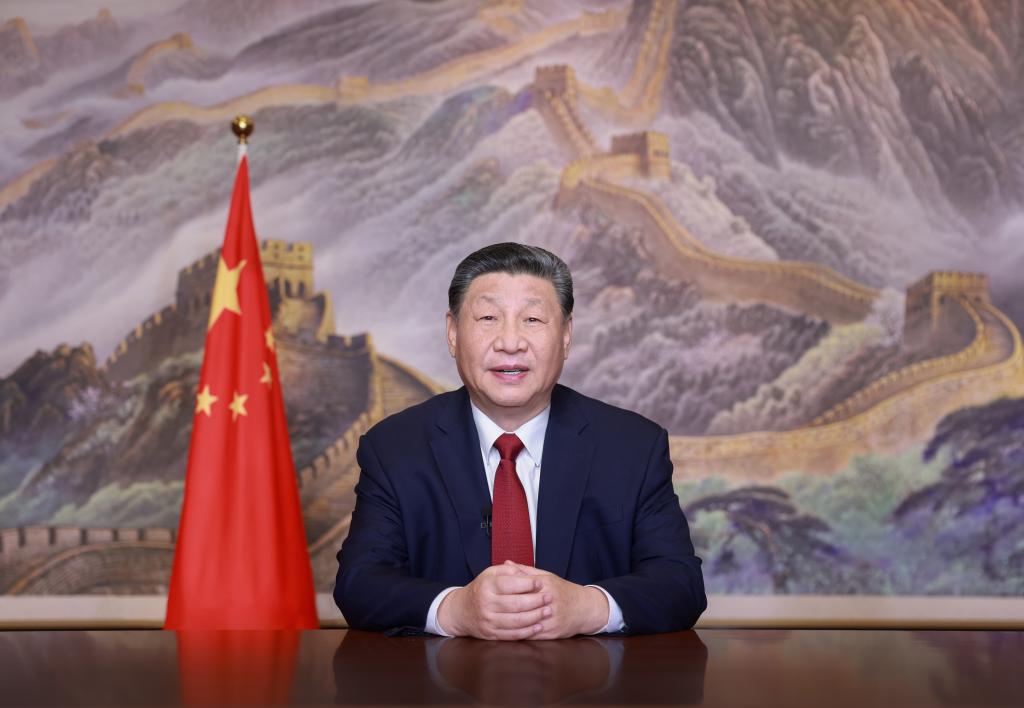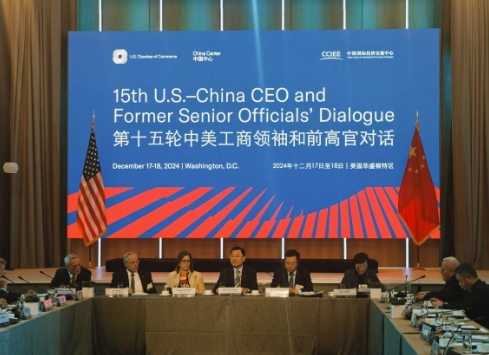CATTI-题库-真题-模拟-课程-直播
 网络
网络
 2024-11-08
2024-11-08

 281次
281次

2024年10月CATTI二级笔译真题(学员回忆版,仅供参考)
笔译实务
Passage 1
话题:房价和利率对购房者的影响
Mortgage rates dropped again this week, after plunging nearly half a percentage point last week. The 30-year fixed-rate mortgage averaged 6.58 percent in the week ending November 22, down from 6.61 percent the week before.
A year ago, the 30-year fixed rate was 3.10%.
Mortgage rates have risen throughout most of 2022, spurred by the Federal Reserve's unprecedented campaign of hiking interest rates in order to tame soaring inflation. But last week, rates tumbled amid reports that indicated inflation may have finally reached its peak.
This volatility is making it difficult for potential homebuyers to know when to get into the market, and that is reflected in the latest data which shows existing home sales slowing across all price points.
Mortgage rates tend to track the yield on 10-year US Treasury bonds. As investors see or anticipate rate hikes, they make moves which send yields higher and mortgage rates rise.
The 10-year Treasury has been hovering in a lower range of 3.7% to 3.85% since a pair of inflation reports indicating prices rose at a slower pace than expected in October were released almost two weeks ago. That has led to a big reset in investors' expectations about future interest rate hikes, said Danielle Hale, Realtor.com's chief economist. Prior to that, the 10-year Treasury had risen above 4.2%.
However, the market may be a bit too quick to celebrate the improvement in inflation.
At the Fed's November meeting, chairman Jerome Powell pointed to the need for ongoing rate hikes to tame inflation.
This could mean that mortgage rates may climb again, and that risk goes up if next month's inflation reading comes in on the higher side.
While it's difficult to time the market in order to get a low mortgage rate, plenty of would-be homebuyers are seeing a window of opportunity.
Following generally higher mortgage rates throughout the course of 2022, the recent swing in buyers' favor is welcome and could save the buyer of a median-priced home more than $100 per month relative to what they would have paid when rates were above 7% just two weeks ago.
As a result of the drop in mortgage rates, both purchase and refinance applications picked up slightly last week. But refinance activity is still more than 80% below last year's pace when rates were around 3%.
However, with week-to-week swings in mortgage rates averaging nearly three times those seen in a typical year and home prices still historically high, many potential shoppers have pulled back.
A long-term housing shortage is keeping home prices high, even as the number of homes on the market for sale has increased, and buyers and sellers may find it more challenging to align expectations on price.
Passage 2
话题:体育运动
I am always amazed when I hear people saying that sport creates goodwill between the nations, and that if only the common peoples of the world could meet one another at football or cricket, they would have no inclination to meet on the battlefield. Even if one didn’t know from concrete examples that international sporting contests lead to orgies of hatred, one could deduce it from general principles.
Nearly all the sports practised nowadays are competitive. You play to win, and the game has little meaning unless you do your utmost to win. On the village green, where you pick up sides and no feeling of local patriotism is involved, it is possible to play simply for the fun and exercise: but as soon as the question of prestige arises, as soon as you feel that you and some larger unit will be disgraced if you lose, the most savage combative instincts are aroused. Anyone who has played even in a school football match knows this. At the international level sport is frankly mimic warfare. But the significant thing is not the behaviour of the players but the attitude of the spectators: and, behind the spectators, of the nations who work themselves into furies over these absurd contests, and seriously believe – at any rate for short periods – that running, jumping and kicking a ball are tests of national virtue.
As soon as strong feelings of rivalry are aroused, the notion of playing the game according to the rules always vanishes. People want to see one side on top and the other side humiliated, and they forget that victory gained through cheating or through the intervention of the crowd is meaningless. Even when the spectators don’t intervene physically they try to influence the game by cheering their own side and ‘rattling’ opposing players with boos and insults. Serious sport has nothing to do with fair play. It is bound up with hatred, jealousy, boastfulness, disregard of all rules and sadistic pleasure in witnessing violence: in other words it is war minus the shooting.
If you wanted to add to the vast fund of ill-will existing in the world at this moment, you could hardly do it better than by a series of football matches between Jews and Arabs, Germans and Czechs, Indians and British, Russians and Poles, and Italians and Jugoslavs, each match to be watched by a mixed audience of 100,000 spectators. I do not, of course, suggest that sport is one of the main causes of international rivalry; big-scale sport is itself, I think, merely another effect of the causes that have produced nationalism. Still, you do make things worse by sending forth a team of eleven men, labelled as national champions, to do battle against some rival team, and allowing it to be felt on all sides that whichever nation is defeated will ‘lose face’.
I hope, therefore, that we shan’t follow up the visit of the Dynamos by sending a British team to the USSR. If we must do so, then let us send a second-rate team which is sure to be beaten and cannot be claimed to represent Britain as a whole. There are quite enough real causes of trouble already, and we need not add to them by encouraging young men to kick each other on the shins amid the roars of infuriated spectators.
Section 2 Chinese-English Translation
Passage 1
话题:人与自然和谐
人类未来的命运在很大程度上取决于自然而不是人类自己。因此,要从根本上解决环境危机,就要改变那种人与自然对立的态度,纠正以人为中心的观点,树立人与自然统一的整体观,尊重、敬畏自然,与自然建立和谐共生的关系。
“天人合一”的思想是尊重和敬畏自然的思想,因为它把包括人在内的整个自然界看作是一个统一的生命系统。我们要吸取中国古人“天人合一”的智慧,明了人与自然为生命共同体,对天地万物怀感激、感恩之情,尊重自然、顺应自然、保护自然。
中国著名政治家管子认为,人类与自然保持协调就会产生天地之美。今天,我们要“生”出天地之美,就必须走绿色发展的现代化之路,即人与自然的和谐共生之路。
在对待自然方面,我们要做的调整很多。一是要调整对自然的态度,尊重和爱护自然,把自然当朋友。二是要调整经济发展方式,放弃以消耗自然资源为主的发展模式,多发展低能耗、低物耗的节能环保产业。三是要调整生活方式,引导人们树立抑制贪婪的物欲,倡导简约、低碳的生活方式,防止奢侈浪费和不合理消费。
Passage 2
话题:未成年人犯罪
2020年12月2日,教育部回应了全国人大代表提出的预防未成年人犯罪建议。教育部表示,随着我国经济社会的迅速发展,未成年人违法犯罪出现了低年龄、低学历的趋势。教育部非常重视预防未成年人犯罪问题,将加强与相关部门协同配合,综合施策、共同努力,切实提高预防未成年人犯罪工作的针对性、实效性。具体措施如下:
一是积极推动有关法律法规的修订工作,为预防未成年人的犯罪工作提供有力的法律保障。
二是持续开展法治教育,指导各地强化品德修养和校规校纪教育,引导学生形成规则意识、法治观念。
三是有效发挥好家校协同作用,编制家庭教育指导手册,帮助家长树立科学的教育观念,营造良好的家庭教育环境。
四是为未成年人成长营造健康的网络环境。
五是加大教育惩戒力度,对实施欺凌和暴力的中小学生必须依法依规采取适当的矫治措施予以教育惩戒。
Section 2 Reading Comprehension
Passage 1
主题:平权运动的影响
When the U.S. Supreme Court struck down affirmative action in college admissions in June, the effects ricocheted far beyond academia. In recent months, a flurry of litigation has aimed to translate the court’s race-blind stance on education to corporate diversity and inclusion policies.
Companies have long tried to eliminate inequality in their ranks, in part by encouraging the hiring and promotion of women and racial minorities. But recent lawsuits claim those efforts perpetuate discrimination on the basis of race and gender — the very injustice they claim to stamp out.
Here’s what you should know about the growing legal battle over corporate diversity, equity and inclusion efforts.
What to know?
Does the Supreme Court ruling on affirmative action apply to companies?
Wasn’t DEI under fire before the court decision?
How is the legal fight playing out?
What DEI practices are most likely to face scrutiny?
What should employers do about all this?
Does the Supreme Court ruling on affirmative action apply to companies?
The short answer is that it doesn’t — at least not directly.
Unlike colleges and universities, private employers were already barred from making decisions based on race under the Civil Rights Act of 1964. Companies cannot set aside a portion of jobs for minorities, or hire an applicant solely because of their race.
Decades of legal precedent have allowed employers to take race into account, especially in the interest of countering historical inequities in their workforces, according to Stacy Hawkins, a law professor at Rutgers University and a former corporate employment lawyer who specializes in diversity. But there’s growing pushback from litigants eager to see those practices curtailed as well.
“Quite frankly, the most risky thing an employer can do is make any employment decision explicitly on the basis of race,” Hawkins said. “But you can be committed to diversity in your workplace and take steps that are informed by that commitment.”
That might entail eliminating exclusionary parts of the hiring process or seeking alternative talent pools, Hawkins said. It could also mean providing employee resource groups, mentorship or other forms of support to members of underrepresented groups once they’re on board.
Wasn’t DEI under fire before the court decision?
Yes, and corporate commitments to these endeavors have been waning. In the wake of George Floyd’s murder in 2020, companies made $340 billion in commitments to improve racial equity in their ranks between May 2020 and October 2022, according to data from the McKinsey Institute for Black Economic Mobility. But in the past year, companies have been paring back DEI roles.
Conservative politicians and advocacy groups also have been challenging DEI practices. For example, Florida Gov. Ron DeSantis (R) has barred spending on DEI at public colleges and universities in his state, declaring “Florida is where ‘woke’ goes to die.”
In July, 13 Republican attorneys general sent a letter urging Microsoft and other Fortune 100 companies to reexamine their DEI policies in response to the Supreme Court ruling on affirmative action. The letter threatened “serious legal consequences” for companies that rely on race-based employment preferences, including “explicit racial quotas and preferences in hiring, recruiting, retention, promotion and advancement.”
Companies take an expansive range of approaches to enhancing diversity, from tailoring their recruiting to better reach underrepresented groups to helping minority employees feel supported in the workplace, according to Stephanie Creary, assistant professor of management at the Wharton School of the University of Pennsylvania. And ever since these efforts began, in the wake of the Civil Rights Act of 1964, they’ve faced significant pushback.
“The government does not tell people how to execute this,” Creary said. Companies “have to figure out for themselves what that means and what practices they have to put into place.”
Passage 2
话题:凯文·麦卡锡在选举中被淘汰
California Congressman Kevin McCarthy was voted out as speaker of the House last week. Why did Kevin McCarthy take that job in the first place?
It took 15 rounds of balloting to win the position in January, and he seemed set up to fail by intraparty critics who made governing nearly impossible.
Those who have taken on similar no-win jobs say the only thing harder than accepting the position is passing it up. Even if the role is daunting, they offer enough prestige—or pay—that they’re irresistible.
Some leaders are just wired differently than the rest of us. Where you and I see almost zero chance of success, they see a shot to pull off something magical.
“The private calculus that any individual makes is: What’s the downside?” says Jim Citrin, who leads the CEO practice of executive-search firm Spencer Stuart. “If everybody knows the job is really challenging and it doesn’t work out, well, that was the expectation. If it does work, then you’re a hero.”
To this day, Alan Fishman—who became chief executive of Washington Mutual 17 days before it was seized and sold by federal regulators—believes that he could have turned around the bank if given enough time. Others saw a suicide mission. He saw a relatively simple business model that could be fixed.
“Failure wasn’t the issue in my mind,” he says. “I never thought the FDIC was going to take the bank.”
His belief that Washington Mutual was an important institution gave him a strong sense of purpose in the face of obstacles, noting that executives are often willing to take on big challenges when the work feels meaningful.
The McCarthy saga even features side squabbles over office space. Former House Speaker Nancy Pelosi (D., Calif.) got booted from her hideaway in the Capitol. She was notified via email by interim Speaker Patrick McHenry (R., N.C.): “Please vacate the space tomorrow.”
It isn’t often that Congress, a sui generis workplace if there ever was one, resembles our daily office life. Then again, a lot of bosses deal with unruly staff who are never satisfied and backstabbing colleagues who cut deals with their rivals.
The temptation to give up and walk away has got to be strong. More than 1,200 CEOs have left their jobs so far this year, the highest on record since 2002, when outplacement firm Challenger, Gray & Christmas started counting.
Anybody who follows a legend has to feel at least a tinge of impostor syndrome. When Tim Cook succeeded Steve Jobs at Apple, there was widespread doubt anybody could fill Jobs’s shoes. Eleven years later, Cook is the longest-serving CEO of Apple, one of the most valuable companies on earth.
The ending isn’t always so happy, however. (See also Disney and GE.)
No-win jobs can also come with lucrative consolation prizes. Irving Picard, the court-appointed trustee tasked with clawing back funds for Bernie Madoff’s victims, recovered 75 cents on the dollar of the stolen money. His firm, BakerHostetler, took in more than $1 billion in fees for the job.
And consider the bull rider. Who looks at a one-ton, bucking piece of beef and thinks … (省) Stetson Wright, 24, lassoed $900,000 in winning last year after an epic rodeo season.
Passage 3
话题:债券市场
Signals about government spending have been flashing for months — and now the risks of all-out war are growing.
For months now, the bond markets have been flashing warning signals. The era of zero interest rates, in effect free money available for consumers and governments to borrow, is over. Debt is going to cost us all more, governments included.
Largely unnoticed outside the financial pages there has been a giant sell-off in the bond markets — that is, in the markets for the debt that governments issue to supplement taxes and fund all the services we appear to want. When the prices of those bonds fall, as has happened recently, bond yields go up. That is down to investors demanding a better return for taking on a higher risk. The yield on US bonds — treasuries — has risen above 5 per cent. That’s back in financial crisis territory.
Britain was a forerunner last year when there was a run on UK government bonds — gilts — after Liz Truss decided to combine a massive splurge on subsidising energy bills with sudden tax cuts that spooked markets.
This year, what appears to be worrying market participants is not so much the possibility of an escalating war in the Middle East, or the way it would interact with the Ukraine war, or a potential conflict with China. There is a relatively sanguine approach to all this. Analysts talk of the markets having “seen through” geopolitical tensions, based on an assumption that diplomatic efforts will carry on working. I fear they are underestimating the risk of a chain of accidents sparked by the menacing behaviour of the West’s opponents.
Instead, the main concern of the markets is excessively high government spending, particularly in the US. America’s total debt stands at $33.6 trillion. It has tripled since 2007, when on the eve of the financial crisis it was $9 trillion.
In Britain, where we hear a lot of talk about austerity, the national debt has, thanks to the financial crisis, general spending on an ageing population and the impact of the pandemic, risen from less than £700 billion in 2007 to £2.5 trillion.
The moves in the bond markets indicate that investors have decided the pandemic party of ever-increasing spending is now over. Unfortunately, no one has yet had the heart or the courage before an election year to tell voters, who probably don’t want to hear it anyway.
• Do you need to worry about the bond market?
Even this week, with the bond market problem and a potential shutdown of the US government still a possibility if Congress cannot agree a deal next month, the White House is pushing ahead with requests and orders for yet more spending on all manner of stuff, despite what investors are saying.
What’s worrying is that the US and much of the West is maxed out on spending and debt even before a potential clash with the autocracies who seem determined to take on, oppress or defeat the democracies.
At the end of the Second World War, after civilisation had been saved, the US debt-to-GDP ratio (how much the government owes on behalf of its citizens measured alongside the size of the economy) was 114 per cent. Today, it is approaching 130 per cent, and we are only in the early stages of the fight.
In this context it is worrying that there is so little understanding of how perilous the geopolitical and economic situation is, or the scale of the sacrifice and economic reorganisation that is going to be required by the democracies if what’s happening now turns into a regional war or something even worse. To deter the West’s enemies successfully and to prevent further conflict will require more of our nations’ spending to go on security.
Is Europe ready for this war era? The latest economic data tells a troubling story on competitiveness, with business activity on the slide. Britain can hardly boast, either. We appear to be living in the last days of a collective delusion. We don’t seem ready for what’s coming.
Section 3 Cloze Test
话题:教育问题
In the following passage, there are 20 blanks representing words that are missing from the context. Below the passage, each blank has 4 choices marked by letters A, B, C and D respectively. There is only ONE right answer: Blacken the corresponding letter as required on your machine-scoring ANSWER SHEET.
For America's high school seniors, April is the cruelest month. That's when colleges flood the postal system with news of who has won a place in next fall's freshman class. For more than a few families, a difficult decision will follow: Is it worth paying some $125,000 to give their child an education at an elite private college? Or would her future be just as bright if she went to a less expensive school?
These questions have no easy answers. Of course, that's not the impression you get from the $500-million-a-year college-admissions industry, with its magazine rankings, test prep courses, and guidebooks. Certainly many neurotic boomer parents--and their stressed-out, resume-building teenagers--assume that it is always better to choose Harvard over Big State U. because of Harvard's presumably superior educational environment, better alumni connections, and more lucrative on-campus recruiting opportunities.
It's true that big law firms, major teaching hospitals, and investment banks--heck, even the offices of FORTUNE--are stuffed with Ivy Leaguers. It's also true that if you want a career at what passes for the American establishment--Sullivan & Cromwell, McKinsey, Goldman Sachs--a gilt-edged diploma is a distinct advantage. Then again, there's plenty of anecdotal evidence that an elite education is hardly necessary. Steve Jobs dropped out of Reed. Jack Welch went to the University of Massachusetts, Warren Buffett to the University of Nebraska. The majority of top CEOs _____ by FORTUNE in 1990 did not attend an elite college (though a disproportionate number _____).

 点赞(0)
点赞(0)

 收藏
收藏

2025年第九届亚洲冬季运动会将在黑龙江省哈尔滨市举办。在亚冬会倒计时100天前夕,我们非常高兴邀请到亚冬会组委会副主席、中国奥委会副主席周进强先生,亚冬会组委会副主席、黑龙江省人民政府副省长韩圣健先生,亚冬会组委会副主席兼秘书长、哈尔滨市人民政府市长王合生先生,亚冬会组委会副秘书长、哈尔滨市人民政府副市长张海华女士,请他们为大家介绍哈尔滨亚冬会筹办情况。
国新办&CGTN 2025-01-06 14:49:40
 收藏资讯
收藏资讯

Greetings to everybody! Time flies fast, and the new year will be with us shortly. I extend my best wishes to you all from Beijing.
CGTN 2024-12-31 21:46:41
 收藏资讯
收藏资讯

国务院新闻办公室于2024年12月26日(星期四)下午3时举行新闻发布会,请国务院第五次全国经济普查领导小组副组长、国家统计局局长康义,国务院第五次全国经济普查领导小组办公室主任、国家统计局副局长蔺涛,国家统计局普查中心主任何平,国家统计局国民经济综合统计司负责人王冠华介绍第五次全国经济普查结果有关情况,并答记者问。
国新办 2024-12-31 09:06:35
 收藏资讯
收藏资讯

大家下午好!很高兴参加第十五轮中美工商领袖和前高官对话。在中美建交45周年、美国大选落下帷幕之际,举办此次对话恰逢其时。在座各位朋友都是中美关系的积极参与者、贡献者,也是重要利益攸关方。感谢你们长期以来为中美关系发展所做积极贡献。
驻美使馆 2024-12-30 17:17:47
 收藏资讯
收藏资讯